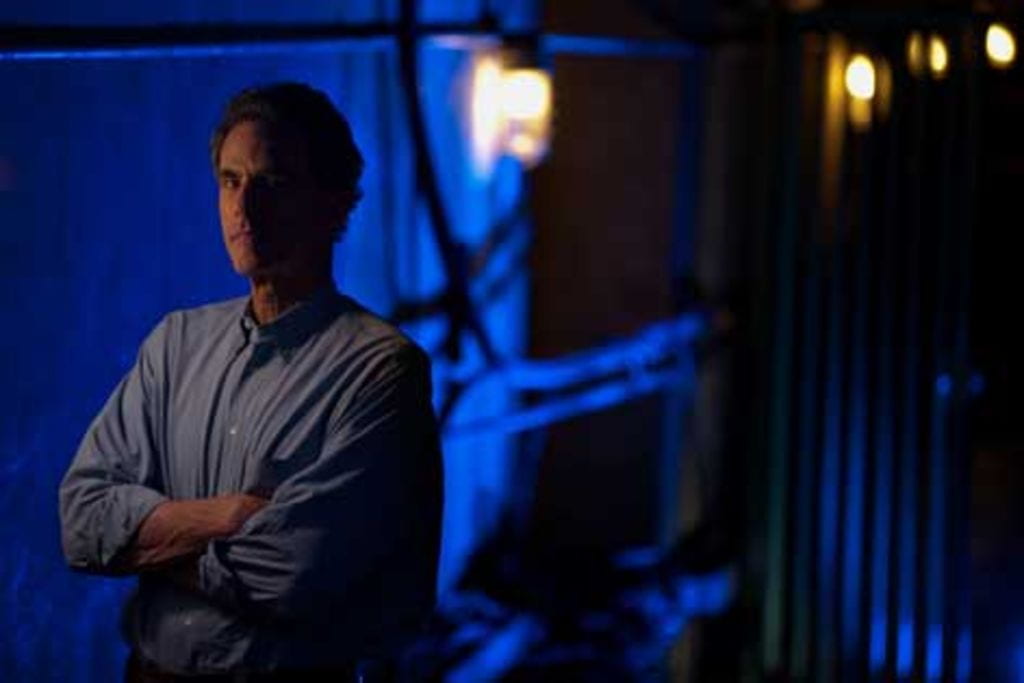Life sentence
After 20 years as an L.A.Times crime reporter, author and literary journalism professor, Miles Corwin crosses over into fiction in “Kind of Blue.”

Most people would run from gruesome crime scenes. But UC Irvine literary journalism professor Miles Corwin has spent his career running toward them.
As a Los Angeles Times crime reporter for 20 years and bestselling
author of three nonfiction titles, he’s explored many facets of crime.
Now, he’s leaping into fiction with his crime novel, Kind of Blue, which
has already met with praise. Booklist says: “This fine first novel
marks the arrival of a strong new voice in hard-boiled crime fiction.”
A career covering crime — especially with “immersion journalism” — can be an adrenaline rush, whether it’s spending six months with the homicide division of the Los Angeles Police Department for his first book, The Killing Season, or a year with an elite homicide unit for his third book, Homicide Special.
But it’s not the rush he’s after. A strong undercurrent of justice and understanding of the multilayered consequences of crime drives Corwin.
“Crime is such a franchise in Hollywood,” he says. “It’s exploitive and almost pornographic the way crime is portrayed. It’s all about violence.”
He counters, “In real life, it’s about suffering. It’s about consequences. It’s about families and communities destroyed. And I wanted to portray that. Crime always interested me as a window into society: human behavior, human motivation, immigration, inequality, racism.”
Although journalism is exciting, it’s also demanding. Corwin says he was ready for a new challenge, but the transition hasn’t been easy.
“There were things I couldn’t say in nonfiction,” he says. “I’m freer in fiction. I still consider myself a journalist, but, as a writer, it’s nice to stretch. So I had to learn a whole new set of skills. After eight rewrites, I started to figure it out.
“Writing is very humbling. It’s not like other things where you say, ‘Now I’ve got it. I’ve got it all figured out.’ That never happens,” he laughs.
Since arriving at UCI in 2007, he’s been sharing his experiences with students: “I treat them like young writers, not like students,” he says. “I may be more demanding because I have high expectations — and I take them seriously.”
Corwin’s teaching inspiration comes from a different kind of immersion. For his second book, And Still We Rise, Corwin detoured from the mean streets and stepped into the classroom to follow 12 high school honor students in South Central L.A. for a year. He wanted to focus on the majority of good kids in South Central L.A. rather than the minority causing problems.
“It was one of the most satisfying things I’ve ever done as a reporter,” he says.
His effort earned a PEN USA West award for creative nonfiction in 2001, and led him to become a student himself. He learned how to teach from an AP English teacher there who “had a gift of making literature — Shakespeare and James Joyce — relevant to kids who grew up in South Central L.A.”
“She used the Socratic method and asked a lot of questions. She drew out of the students answers and enthusiasm, and the class came alive. It was a revelation to me,” Corwin says. “I learned not to talk at students. Talk to them and ask them questions and make sure their voices are in the classroom — more than mine.”
Barry Siegel, UCI’s Literary Journalism Program director, appreciates Corwin’s contributions: “Miles Corwin is invaluable to the Literary Journalism Program. In his books and articles, he combines indefatigable reporting with graceful writing; in the classroom he inspires and supports our majors.”
While Corwin encourages, he also brings a heavy dose of reality: “I tell my students, ‘If you want to be a writer, you have to face a lifetime of criticism,'” says Corwin. “Masochists are welcome here.”
Miles Corwin will have book signings in Orange County:
Friday, Nov. 12, 5-7 p.m. at Book Carnival, 348 South Tustin St., Orange; and Saturday, Nov. 20, 10:30 a.m.-noon at Mystery Ink, Goldenwest Plaza, 7176 Edinger Avenue, Huntington Beach.